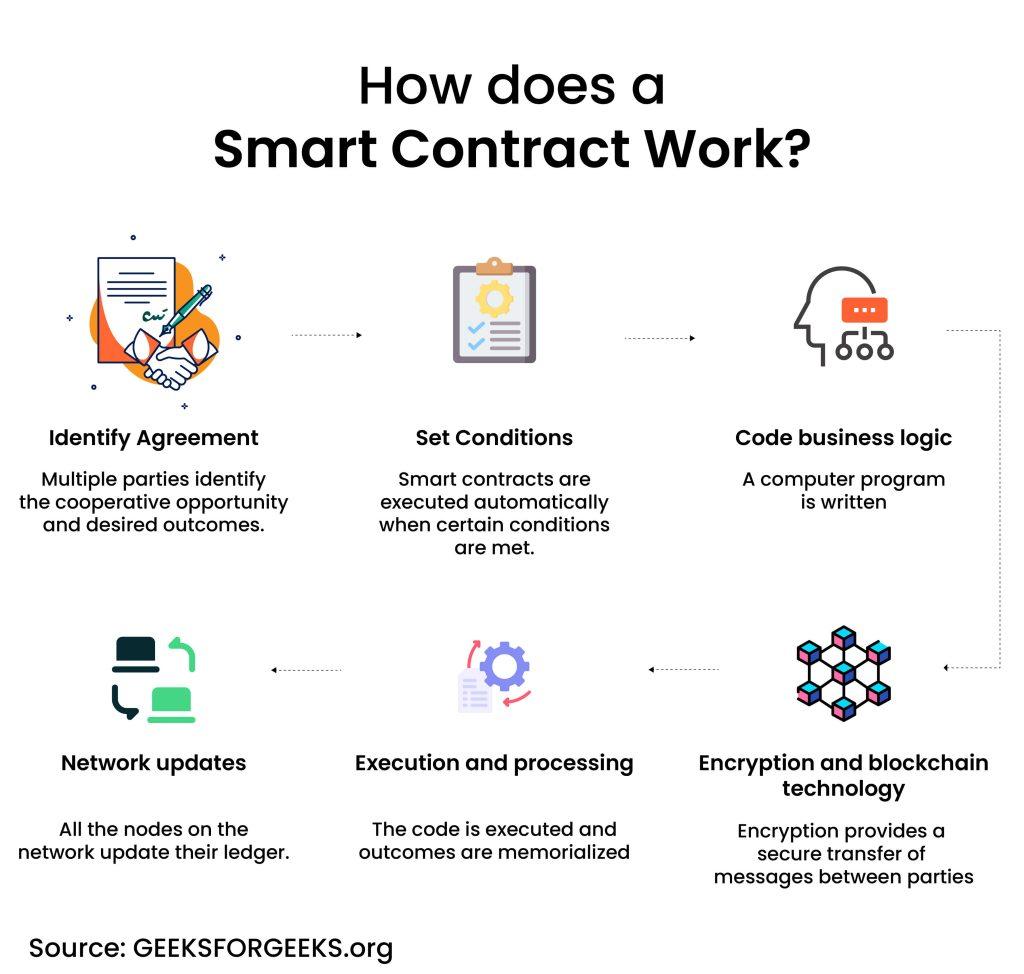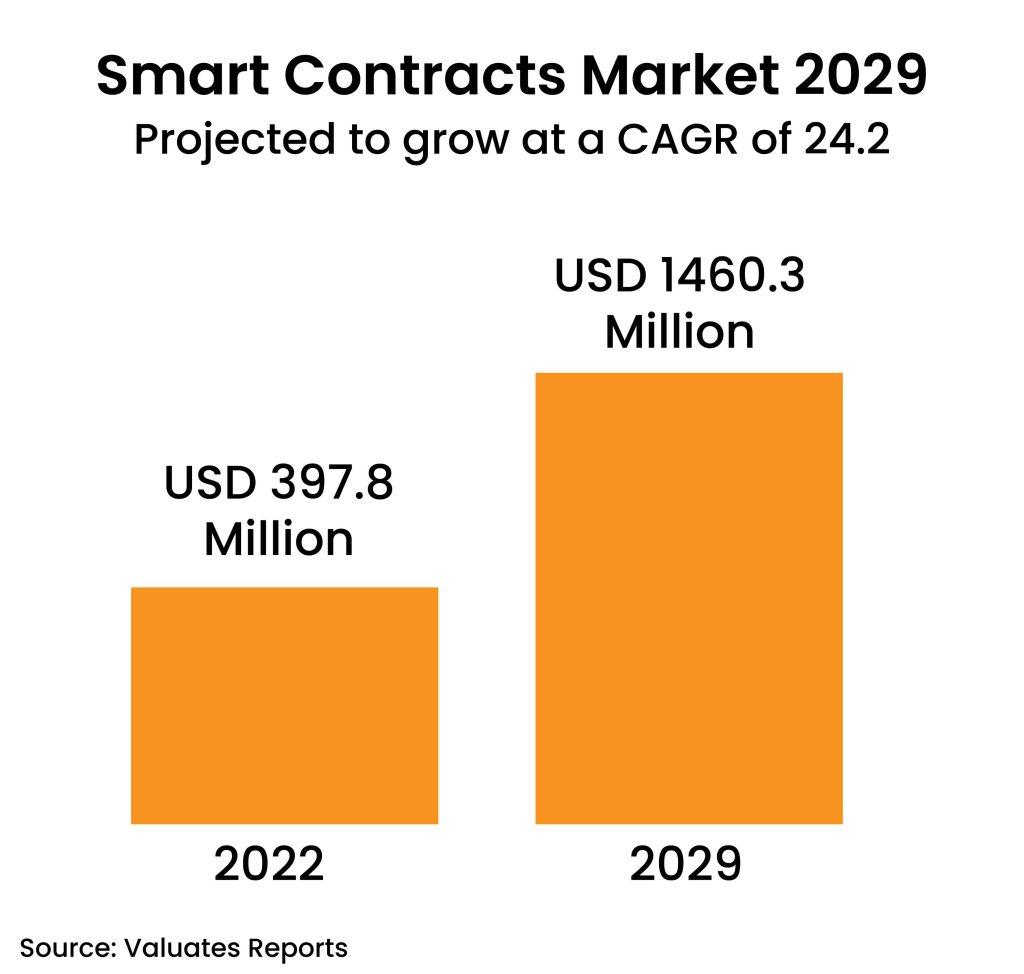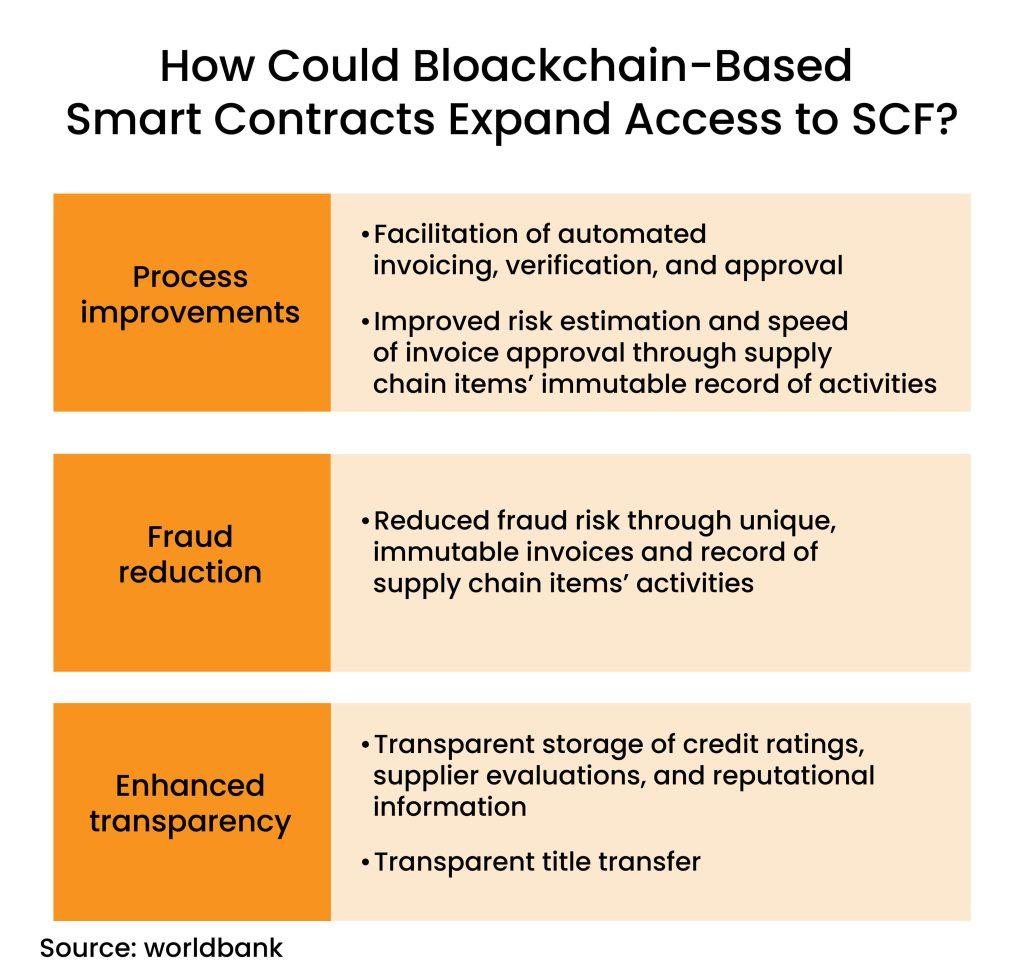Smart Contracts: Unlocking Efficiency in Supply Chain Financing
Imagine yourself at a self-checkout station in a grocery store. You scan your items, put them in bags, and subsequently proceed to make a payment using the machine. In this scenario, there is a direct exchange between your payment and the goods you’re paying for, without the involvement of a cashier or a store employee. This process is similar to that of smart contracts. In several ways, smart contracts are similar to the mentioned functions and can handle a wide range of tasks, from automating property transfers to ensuring trade transactions across several industries.
What are Smart Contracts?
Smart contracts are coded instructions which are designed to be automatically executed when certain pre-programmed conditions are satisfied. On blockchain, the goal of a smart contract is to simplify business and trade between both anonymous and identified parties, generally cutting out the need of the middleman.
How Do Smart Contracts Work?
Smart contracts use the IF-THEN logic to provide coded details and permissions which require an exact sequence of events to take place in order to trigger the agreement of terms mentioned in the contract.

To elaborate, the step-by-step breakdown of their operations entail:
1. All the parties, setting the terms of the contract.
2. Once created, the smart contract is deployed on a blockchain.
3. When any party interacts with the smart contract, it triggers the conditions, thus, activating the contract.
4. The network of computers on the blockchain validates the transaction.
5. If all the conditions in the contract are satisfied, then the smart contract automatically performs the specified actions.
6. Finally, the transaction is recorded on the blockchain, ensuring transparency and immutability.
Throughout the process, smart contracts do not require intermediaries like financial institutions or legal aid, to facilitate the process.
Smart contracts have several applications in business with the promise to reshape numerous industries and redefine traditional operations in numerous sectors including supply chain finance and international trade.
Studies predict that organizations using blockchain smart contracts will increase the overall data quality by 50%.
The global smart contracts market size amounted to $398 million in 2022 and is projected to achieve a market size of $1.4 billion by 2029. As more companies adopt blockchain technology, the requirement for smart contracts will continue to grow.

How Smart Contracts are Enabling Financial Inclusion in Supply Chain Financing
Smart contracts streamline multiparty systems in supply chain financing, reducing informational asymmetries, boosting speed, efficiency, and cutting costs. Typically hosted on a permissioned blockchain managed by financial institutions or third-party fintech platforms, smart contracts drive process improvements, curb fraud, and enhance transparency in invoice discounting. Blockchain advancements enable real-time tracking in the supply chain, while smart contracts enforce conditional workflows, enhancing overall supply chain management. All transaction parties benefit from tailored process improvements through the use of blockchain and smart contracts, allowing automated verification, approval, and transfer processes. This transformative approach facilitates the automated release of discounted funds from financial institutions to MSMEs. Smart contracts on blockchain technology have the potential to make international trade faster and more efficient, enabling banks to leverage an additional loan volume growth of $149 billion, with a reduction in the settlement time.

Potential for Smart Contracts in Supply Chain Financing.
Blockchain and smart contracts have the potential to make supply chain and trade finance documentation more efficient, especially by streamlining processes spread across several parties and databases. Generally, supply chains are hampered by paper-based systems reliant on the trading parties and banks physically transferring documents. Smart contracts can facilitate supply chain financing by automating the verification and settlement of invoices, reducing the risk for lenders which provides small and medium-sized enterprises (SMEs) with improved access to financing and liquidity. They are revolutionizing supply chain management by providing end-to-end visibility and transparency. They can automate tasks such as inventory management, order processing, and payment settlements, enhancing efficiency and reducing delays.
In summary, for trading businesses, smart contracts are paving the way for the simplification of cumbersome day-to-day processes. As technology continues to evolve, smart contracts are making trade transactions swifter, more transparent, and more equitable. By embracing smart contracts, businesses stand to gain a significant amount in efficiency and transparency.
Think Working Capital… Think CredAble!
